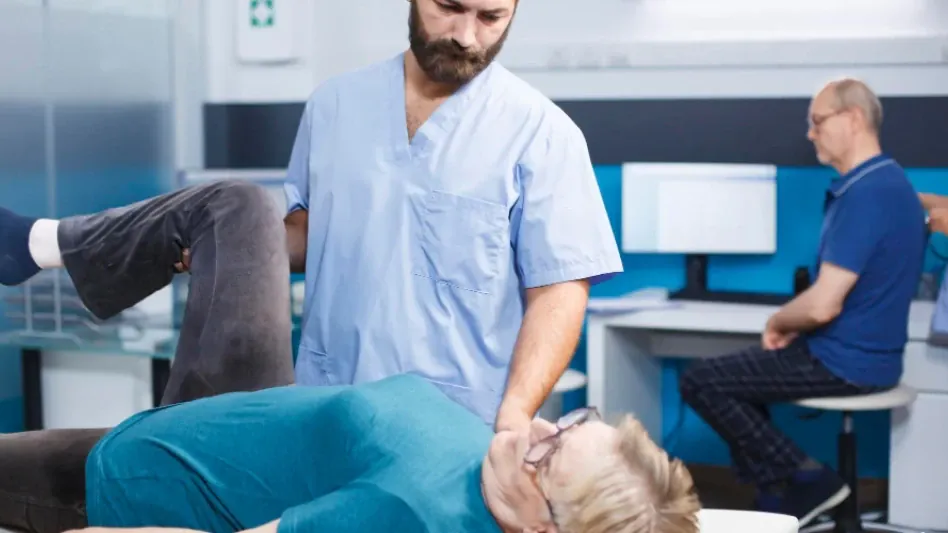Indiana University of Pennsylvania (IUP) is taking significant steps to address the healthcare crisis in rural Pennsylvania by establishing a new college of osteopathic medicine. This initiative aims to increase the number of practicing physicians in underserved areas, ultimately improving access to healthcare for rural communities. The endeavor is expected to be a catalyst for positive change, bringing a much-needed influx of healthcare professionals to regions where they are most urgently needed.
Establishing the College of Osteopathic Medicine
IUP’s journey towards establishing a college of osteopathic medicine is a meticulous process that requires adherence to accreditation standards set by the American Osteopathic Association’s Commission on Osteopathic College Accreditation. This process, expected to take three to five years, began in December 2022 when IUP’s Council of Trustees endorsed the exploration of this development. Securing clinical training sites is a crucial component of this process. Students in osteopathic medicine colleges typically spend their first two years in classroom learning, followed by practical clinical experiences within community hospitals during their third and fourth years. IUP has been proactive in forging partnerships with healthcare facilities to ensure these essential training opportunities.
The first stage of the accreditation process involves comprehensive evaluations and assessments to align the proposed college’s curriculum, faculty, and resources with the stringent standards mandated by the accrediting body. This foundational work sets the stage for the subsequent stages of development, which include establishing a robust infrastructure and recruiting qualified faculty. These steps underscore the commitment of IUP to create a premier educational facility targeted at ameliorating the healthcare issues in rural Pennsylvania. The prolonged and meticulous process ensures that the college will be equipped to offer a high-quality educational experience capable of producing competent healthcare professionals ready to serve in high-need areas.
Clinical Training Sites and Agreements
One of the most critical elements in the development of a medical school is the establishment of clinical training sites where students can gain hands-on experience during their final years of study. IUP’s agreement with Penn Highlands Healthcare marks the tenth formalized arrangement by the university, underscoring its commitment to building an extensive network of clinical training sites. These partnerships are pivotal in meeting accreditation requirements while offering students valuable, practical experiences in diverse healthcare settings.
Other notable agreements include partnerships with Clarion Psychiatric Center, Armstrong County Memorial Hospital, Conemaugh Memorial Medical Center, among several other healthcare facilities. These agreements ensure that students will have access to a broad range of clinical experiences, particular emphasis being placed on rural areas. The strategy behind these partnerships is to immerse students in a variety of clinical settings that reflect the realities of rural healthcare. This comprehensive approach is intended to prepare students not just to practice medicine, but to understand and adapt to the unique challenges present in underserved communities.
By setting up these training sites in rural areas, IUP aims to provide an immersive experience that encourages students to stay and practice in these regions after completing their education. The hope is that by fostering a connection to these communities, students will be more likely to pursue careers in rural healthcare. The training sites serve as both an educational tool for students and a means of addressing the immediate healthcare needs of the communities, demonstrating a dual benefit that aligns with the university’s broader mission.
Addressing the Rural Health Crisis
One of the primary goals of establishing the college of osteopathic medicine at IUP is to address the physician shortage in rural Pennsylvania. The patient-to-primary care physician ratio in these areas is alarmingly high, highlighting the urgent need for more healthcare providers. According to the United Health Foundation, the disparity is evident, with a significant gap between the number of patients and the availability of primary care physicians. By focusing on rural healthcare facilities for clinical training sites, IUP aims to immerse students in these communities, fostering a deeper understanding of the unique challenges and needs of rural healthcare. This approach is designed to encourage students to pursue careers in these underserved areas.
The rural health crisis is characterized by not only a lack of physicians but also a paucity of specialized services, which forces many patients to travel long distances for care they could more conveniently receive closer to home. The crisis is exacerbated by the aging population and the retirement of existing doctors, which further strains the healthcare system. Addressing this issue requires a multifaceted approach that combines education, community engagement, and a long-term commitment to rural health. By preparing students through comprehensive clinical training in rural settings, IUP aims to cultivate healthcare professionals who are well-versed in the intricacies and demands of rural medical practice.
Moreover, the initiative to establish the college is not just about filling a gap but fundamentally improving the quality of healthcare. By focusing on osteopathic medicine, which emphasizes a holistic approach to patient care, IUP is aiming to introduce a cadre of doctors who will bring a comprehensive and compassionate approach to treating patients. The ultimate goal is not merely to increase the numbers but to ensure that these new physicians are equipped with the skills and mindset necessary to make a substantial difference in the communities they serve.
Leadership and Support for the Proposed College
Leadership plays a pivotal role in the successful establishment of the college, and IUP has appointed a team of highly qualified individuals to spearhead the initiative. Dr. Miko Rose, appointed as the founding dean in November 2023, is leading the charge to establish the college. Alongside Dr. Rose, Dr. Ryan Smith and Dr. Luke H. Mortensen are instrumental in laying the groundwork for the college’s development. The collective experience and expertise of this leadership team are essential in navigating the complexities involved in setting up a new medical institution.
Dr. Rose brings a wealth of experience in both medical education and clinical practice. Her vision encompasses not just the academic excellence of the college but also its role in addressing broader healthcare disparities in the region. Dr. Smith, serving as the Founding Associate Dean of Clinical Affairs and Graduate Medical Education, is tasked with overseeing the clinical training components, ensuring they meet the rigorous standards necessary for preparing competent physicians. Meanwhile, Dr. Mortensen, the Founding Associate Dean of Preclinical Affairs, focuses on the early stages of medical education, laying the foundational knowledge students will need for their clinical years. This leadership team is committed to creating a robust educational environment that prepares students to meet the healthcare needs of rural communities. Their expertise and dedication are vital to the success of this initiative.
The leadership team’s approach is fundamentally built around collaboration with existing healthcare providers and community stakeholders. This collaborative approach aims to ensure that the college’s efforts are well-integrated with the needs of the communities it aims to serve. By engaging with local health practitioners and organizations, the leadership hopes to create a symbiotic relationship that benefits both the university and the broader community, contributing to a sustainable and effective solution to the healthcare crisis in rural Pennsylvania.
Stakeholder Perspectives
The initiative has garnered enthusiastic support from various stakeholders who recognize its immense potential to significantly improve healthcare in rural Pennsylvania. IUP President Dr. Michael Driscoll emphasized the critical importance of engaging talented potential physicians to address the state’s healthcare crisis. His vision aligns with the overarching goal of the initiative, which is to produce highly competent healthcare professionals who are committed to serving in rural areas. The support from the highest levels of university administration underscores the gravity and importance of this endeavor.
Dr. Trina Abla, Chief Medical Officer at Penn Highlands Healthcare, expressed optimism about the mutual benefits for students and the communities they will serve. Dr. Abla highlighted the potential for these training agreements to provide students with valuable learning experiences while simultaneously addressing the immediate healthcare needs of rural communities. She sees this initiative as a win-win situation that meets both educational and healthcare goals, creating a model that other regions facing similar crises can replicate.
Incorporating the perspectives of these stakeholders is essential in crafting an initiative that is both effective and sustainable. By involving individuals who are intimately familiar with the challenges and opportunities within rural healthcare, IUP ensures that its approach is grounded in real-world insights and practical considerations. This collaboration between educational institutions and healthcare providers forms the backbone of a strategy aimed at creating lasting change in rural healthcare.
Financial and Legislative Support
The project to establish the college of osteopathic medicine has also received substantial financial backing and legislative support, which are crucial for its success. Significant financial contributions have been announced, including $500,000 in gifts in February. Contributions from donors such as Dr. Theodore Lazzaro and Tim and Debra Phillips Cejka have played a pivotal role in providing the resources needed to move the project forward. These donations are a testament to the community’s belief in the importance and potential impact of the new medical college.
In addition to private donations, the initiative has also garnered strong legislative support at both state and federal levels. Figures like Senator Joe Pittman, Representative Jim Struzzi, Congressman Guy Reschenthaler, and Senator John Fetterman have pledged their support, ensuring that the project has the necessary resources and legislative backing to succeed. This bipartisan support underscores the universal recognition of the critical need to address healthcare shortages in rural Pennsylvania.
Financial and legislative backing provides a solid foundation for the college’s development, ensuring that the necessary infrastructure, faculty, and resources are in place to deliver a high-quality medical education. These funds will be instrumental in setting up the facilities and programs required to meet accreditation standards and to create an environment conducive to learning and professional development. The legislative support also ensures that the initiative aligns with broader state and national healthcare goals, creating a synergy that enhances the likelihood of its success and long-term sustainability.
Conclusion
Indiana University of Pennsylvania (IUP) is making considerable efforts to tackle the healthcare crisis in rural Pennsylvania by launching a new college of osteopathic medicine. This initiative is designed to increase the number of practicing physicians in underserved rural areas, thereby enhancing access to healthcare services for these communities. By educating and training more doctors specifically for these regions, IUP hopes to address the severe shortage of healthcare professionals and improve medical care quality where it is critically needed. This new college is not just an academic endeavor; it is a proactive response to a pressing healthcare issue, aiming to bring substantial positive change. Ultimately, the goal is to ensure that rural communities receive the medical attention they deserve, fostering healthier populations and more stable healthcare systems in these underserved areas.









